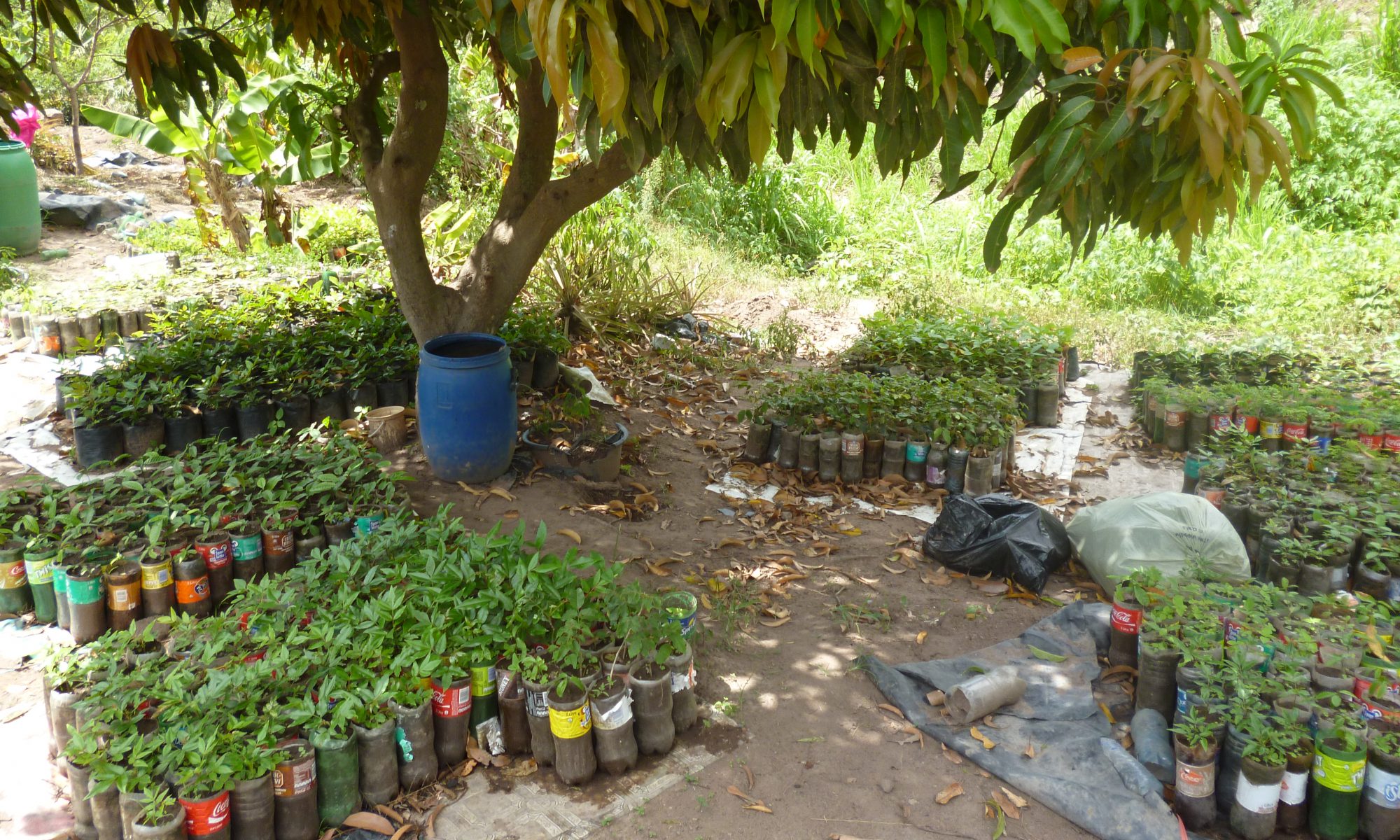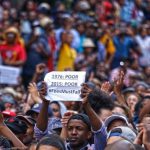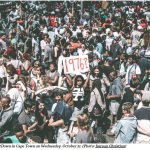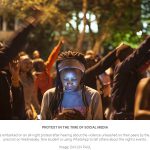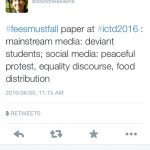by Kathleen Diga
Under the SARChI programme, I recently co-presented a conference paper in the main plenary at the international information & communication technologies for development (ICTD2016) in Michigan, USA. I presented with her co-author, Mr Ndumiso Ngidi, from the Durban University of Technology within a panel on social media and internet access. The paper is titled “’Asijiki’ and the capacity to aspire through social media: the #feesmustfall movement as anti-poverty activism in South Africa”. I have been attending this conference each year since 2009 and I always look forward to the latest research in the field.
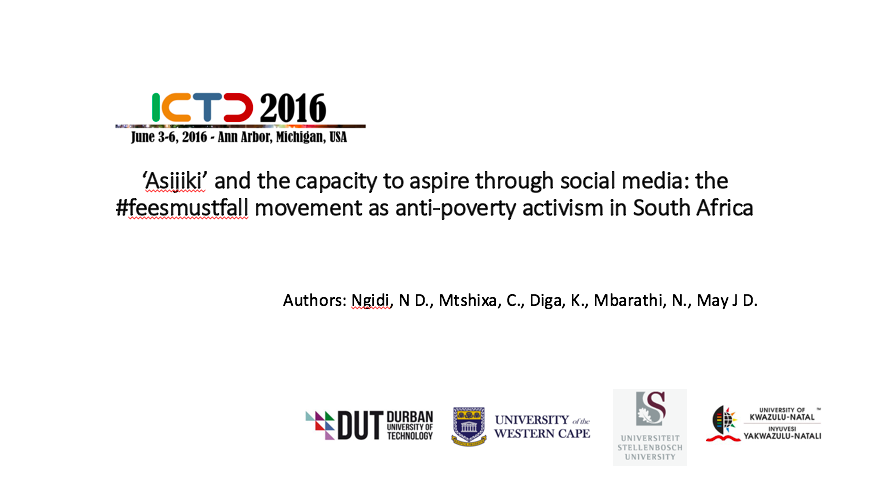
The paper highlights some of the social media content and personal narratives which were gathered during the height of the October 2015 protests in South Africa. The wave of student-led protest has been the accumulation of frustration and injustice around economic transformation in the country. We attempt to locate the specific event within Appadurai’s theory of cultural capacity – capacity to aspire (2004). The research findings illuminated the aspects of the politics of recognition, compliance and future orientation within the student narratives. The capacity to aspire framework further advocates for the strengthening of the capability of the poor and to cultivate their voice. The presentation synopsis that I presented is written up below and shares some of the main points of the paper.
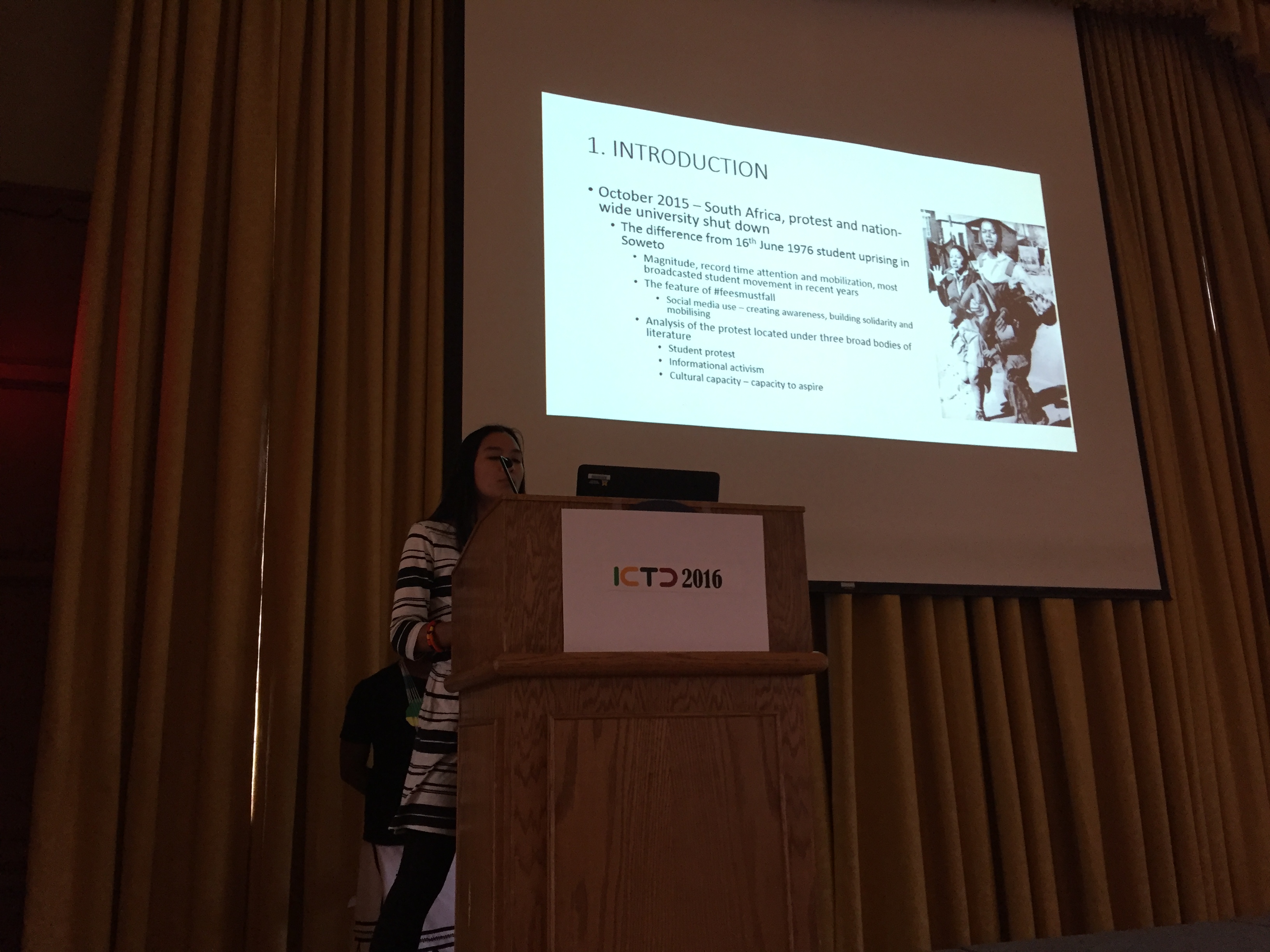
Student protests or “incidents of revolt or unrest which constitute serious challenge to established order” have a long history and remain a feature in university life, certainly in South Africa (Nkinyangi, 1991).
During October 2015 last year, South Africa was swept by a wave of student-led protest, initially set against the hike of university tuition fees. The scale of protest was unprecedented. Twenty South African tertiary institutions within a few days were closed, causing national shut down. What was campaigned under the hashtag, #feesmustfall – was described as the country’s most broadcasted and largest act of youth defiance in the country’s short democratic history.
The paper provides detail on the features of social media use by students and others to garner awareness, solidarity and mobilisation.
Image from the Soweto uprising
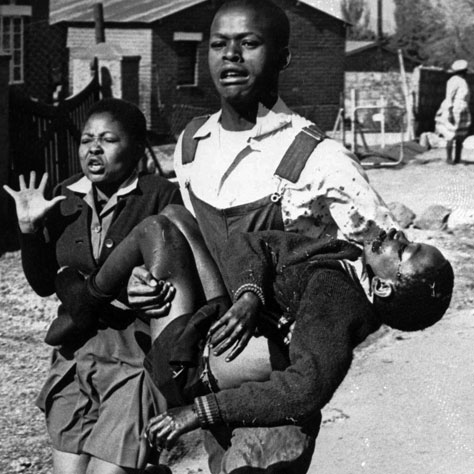
(image taken by S. Nzima)
We also commemorate the 40th year anniversary of Soweto uprising 16 June 1976. The photo here was taken by Sam Nzima and it is a photo of Hector Pieterson, high school student from Soweto being carried away and who was gunned down during the 1976 student protest. The protest was against a discriminatory education policy which imposed inferior education curriculum for then segregated black students. This image galvanised the country and global liberation movements, and ultimately led to the demise of the unfair apartheid era.
Students today remain steadfast to see change. From a reading of 2015 protest messages, students felt little difference from 1976 to today. Although one salient difference between 1976 and 2015 was the use of social media. Its use has allowed for the voice of students to express their lived experiences and everyday struggles of being part of the education system.
In 1994, the first free and democratic election in South Africa took place. There was a hope for a ‘new’ South Africa grounded in freedom. The election campaign by the current government had promised a better life and free quality education for all. Nelson Mandela himself quotes the power of education.
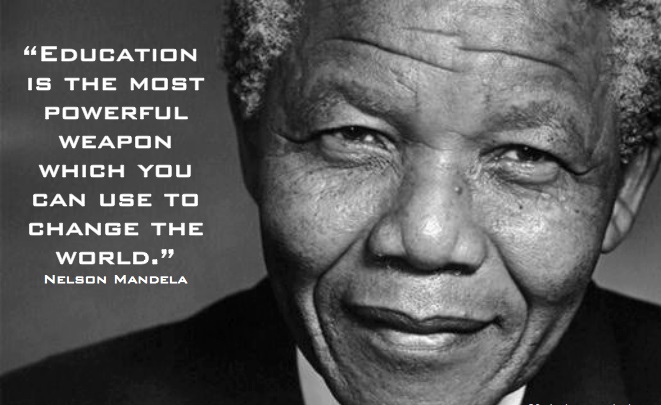
All this seemed plausible at the time, with a country consumed with hope and energy. However, 22 years later, while much change has occurred, there is also a wane of enthusiasm due to a view of little economic transformation. Around 45% are income poor (population of about 50 million), SA has one of the highest levels of income inequality (Statistics South Africa, 2015). However there is a growing trend of ICT adoption and ownership. What is the role of these contemporary tool of the digital within this context? The promises of a better life have yet to materialised. Young South Africans are growing impatient for change. They feel their liberation is not yet complete.
Informational Activism
Student protest and activism in general are evolving. Protests historically relied on conventional media (the power of TV and radio) and word-of-mouth in order to advance student protest. Bringing students together was relatively slow, facilitating meetings weeks before and coordination taking some complex organisation. Conventional media also have choices on story coverage, depending if it was within their editor’s interest.
Social media, notably Twitter, offers alternative channels of communication, wider reach and spread. Egypt, although not a student protest, was one of the first protest noted for its use of social media, being called the “facebook revolution.”
Halupka (2016) argues contemporary civic engagement is an evolving process with a fluid mix of new digital action within traditional participation. Termed information activism – these are the digital expressions within a spectrum of participation. In this paper, we look at digitally engaged citizens who become part of the combined mobilisation and street protest.
The South Africa #feesmustfall campaign is noteworthy for the use of social media. During the heated period of October 2015, one source claimed 300 tweets per minute were being sent. The campaign not only pushed against tuition fee hikes, but students shared personal vignettes of their plight with inequality. We unpack the social media messages and the capacity of students to express their lived experiences and their hopes for change. This re-imagined future is unpacked under a theoretical frame “the capacity to aspire”. A few presentations and the movie last night (Joyojeet Pal’s production of ‘For the love of a man’) made mention of aspirations. How do we make sense of aspirations?
Appadurai states the ability to use voice is to “debate, contest, inquire and participate critically” (2004). The protest is framed not just as a need to lower tuition fees but rather as broader dissent to persistent structural inequality.
The breakdown of the capacity to aspire fall into three concepts:
The politics of recognition, compliance, and future orientation.
Politics of recognition is the ethical compulsion to admit that there are those who live and share a worldview much different from one’s own. Once we accept this difference, there are markers which show that their opinions do not accept the views of others. In the case of October 2015, the expression of student voice through social media brings the voices together and produce a cultural consensus to advance their interest of equality and dignity.
Compliance – it is to interrogate the personal reflection of one’s place in society and challenge this norm of the margninalised. The poor are frequently encouraged to subscribe to the norms which further diminish their dignity and exacerbate inequality. The paper thereby reflects the student voice AGAINST compliance of social norms, it is a resistance against the continuation of poor conditions.
Finally, future orientation is a navigation towards the future of a person. It is a prospective path to bolster one’s self and the ability to change current conditions of one’s well-being.
Protest is an opportune moment to take intervention in realising the aspiration of change.
‘Asijiki’ translated from the Nguni language – is an evocative phrase literally stating ‘we do not turn back’.
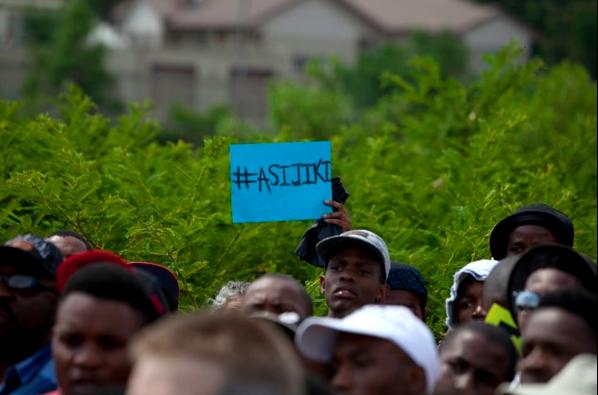
Ndu then presented on the research findings, particularly around censorship and portrayal of conventional media of the protest, and the messages of aspiration. For more information on the findings of the paper, please do take a read of the paper cited as:
I am grateful to my co-authors for producing this paper. We received positive feedback including via twitter from our conference participants and one blog in Spanish from a writer, Zinnia Quiros (http://entreparentesis.org/dame-tuit-potente-lanzare-calle/) who did not attend the conference!
I also attended the ICTD African Researchers network open session that I had help co-founded in 2010. It was great to again meet up with Bobby and Kweku who have been instrumental in keeping this network going. In this session, I led a group through the concepts of “development”. The discussion summarised is that we as researchers need to be clear as to how we define the concept in our research. I also attended the ICTD ethics open session titled “Invitation to Co-Formulate Minimum Ethical Standards in ICT4D”which was led by Dorothea Kleine and Andy Dearden. Led through participatory methods, the hope is to bring practitioners, computer scientists, social scientists, developers together with a common ethical platform when engaging in ICTD research. All in all, this smaller conference gave me the chance to catch up with several researchers I have known through the years as well as meet some whose research I have been following for some time. The research presented as notes or plenary papers are rich in depth and understanding of issues concerning social change. I look forward to participating again in the next conference!
